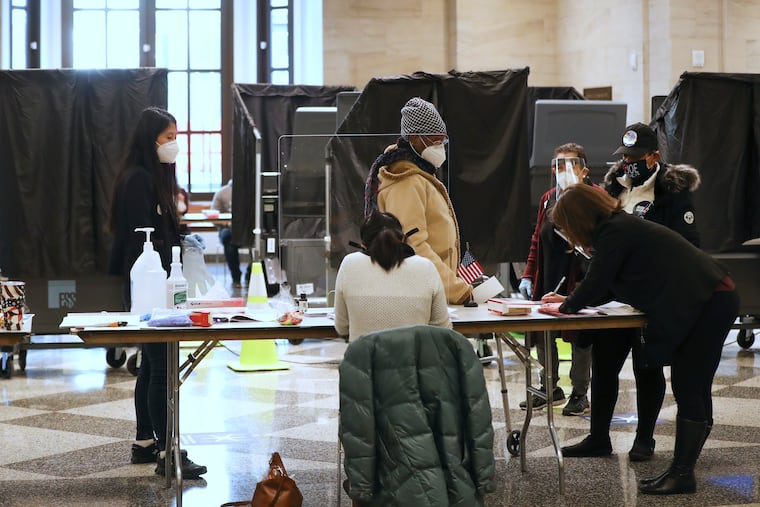Pay poll workers more money | Opinion
To get more dedicated and diverse people in these important roles, compensation must increase.

At your local polling place, you’ve likely seen the same three or four people sitting behind the table for the last 12 years. In my case, I saw the same faces since I was 8 years old and went to the polling place for the first time with my mom. For 25 years my polling place had the same staff … and it was obvious that time had taken its toll. For all their hard work, they needed help. When Donald Trump was elected in 2016, I knew I had to get involved, and running for the Election Board in 2017 made sense. It was something I could do and I thought some new blood would be a benefit.
I began my election roles as a minority inspector and eventually became judge of elections after petitioning the court for the role when the previous judge passed away. In that time, I’ve had to work hard to fill my board with volunteers to ensure we’re able to run elections properly. Of my original staff, only one person remains. After a huge number of poll workers signed up last year to work on Election Day, Philadelphia is again struggling to fill all the necessary slots to help smoothly run our voting process.
The biggest problem with being a poll worker in Philadelphia is the pay.
» READ MORE: Pennsylvania had more poll workers than it could handle last year. Where’d they go? (from March 2021)
For working a 14-hour a day, one that starts at least at 6:30 a.m. and ends at 8:30 p.m., Philadelphia poll workers receive about $120 (plus $40 for a 30-minute training prior to taking on the job). The Election Day pay comes out to about $8.25 an hour for a check that doesn’t arrive until nearly two months later. I work a full-time job, and the loss of a day’s wages isn’t always the easiest option for my finances. I’m certain that for others who have office jobs or work retail can’t afford to take off that easily, either, and knowing a lackluster paycheck is months away makes the decision to work on the Election Board even harder.
That’s why you see mostly retirees working these jobs. It involves low pay, long hours, and can be a thankless experience. Most people just don’t need the hassle. Ask yourself this: After reading about what’s expected of you for two days a year of your life, would you take on this task?
On top of the low pay, election workers are also expected to return the election materials box back to Front and Spring Garden Streets that night. Considering the fact that some election workers don’t drive, this also creates a burden with organizing rides to return the box. For some, it may result in either taking SEPTA, Lyft, or a taxi.
Even for low turnout races, there’s a need for poll workers, which means that the city should give better compensation. During the pandemic, the pay was raised to $200 (plus $50 for pre-Election Day training). This rate should become permanent. Poll workers should also be able to put in requests for reimbursements for any transportation we need to fulfill our duties of returning the election materials box. This will ensure we get more dedicated volunteers and more diverse people to take on these roles.
As we look toward the 2022 midterm elections — and eventually the 2024 presidential election — these are changes that the Philadelphia city commissioners must prioritize.
Larry West has been a judge of elections in Mount Airy since 2018. He also works as a full-time web and graphic designer.